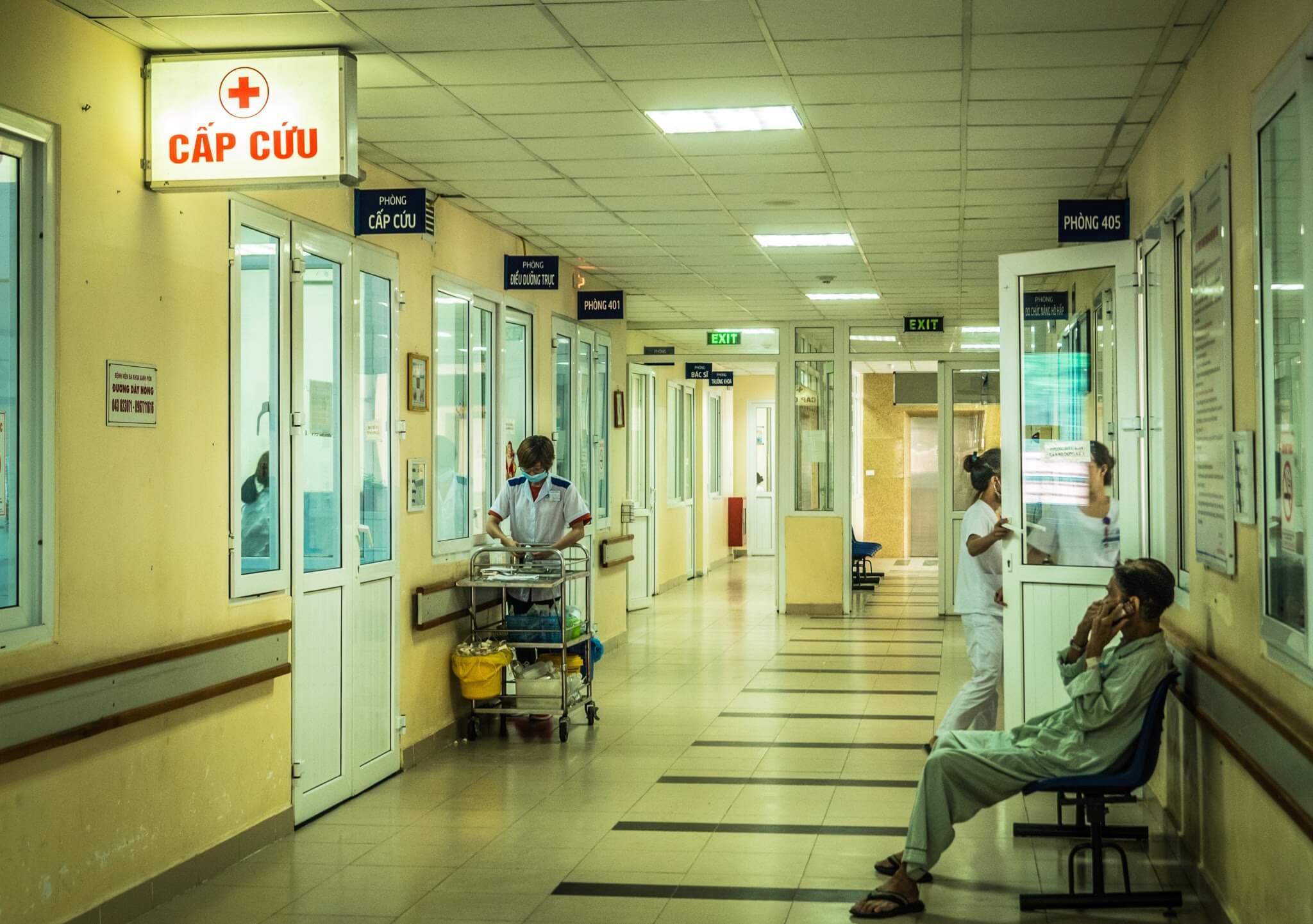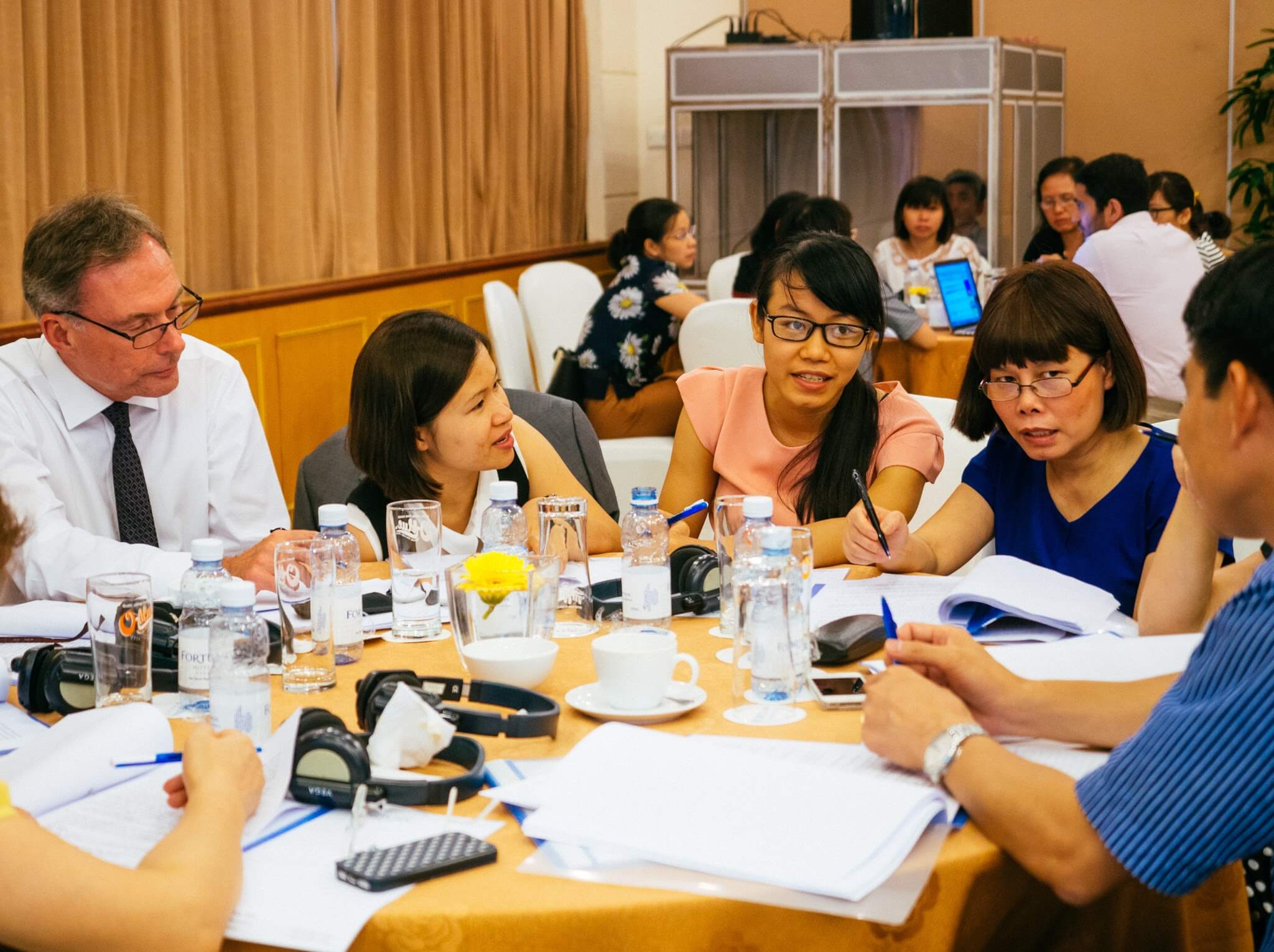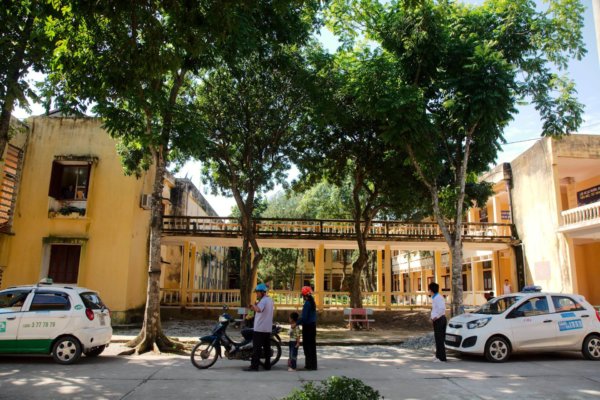Vietnam
- iDSI started working with the Government of Vietnam in 2013. iDSI has supported the Ministry of Health, Vietnam (MOH) and its focal health technology assessment (HTA) unit, the Health Strategy and Policy Institute (HSPI), to develop institutional capacity for evidence-informed priority-setting for UHC.
Our Impact
iDSI has:
Provided technical and operational support to HSPI as a policy champion of HTA
Supported establishment of centralised mechanism for evidence-informed, strategic purchasing of pharmaceuticals
Supported redesign of the Basic Health Services Package to remove ineffective interventions
Through iDSI collaboration, with HITAP as the lead partner alongside the Global Health and Development Group at Imperial College London, Vietnam has progressed from having no structured HTA programme to an environment where HTA evidence is gradually being demanded by policymakers to inform health insurance reimbursement, strategic purchasing of healthcare interventions, quality improvement and infrastructural investment. MOH, HSPI, and other key government agencies such as Vietnam Social Security (VSS) are increasingly committed to priority-setting for UHC, dedicating policies, staff and funding to support related activities. The success of Vietnam demonstrates the value of iDSI’s integrated approach to strengthening priority-setting.
Rationally redesigning the UHC health benefits package
Key reads
Ong The Due, MD, Ammarin Thakkinstian, PhD, Montarat Thavorncharoensap, PhD, Olivia Wu, PhD, Nguyen Khanh Phuong, PhD, Usa Chaikledkaew, PhD (2020) Cost-Utility Analysis of Direct-Acting Antivirals for Treatment of Chronic Hepatitis C Genotype 1 and 6 in Vietnam https://www.valueinhealthjournal.com/article/S1098-3015(20)32113-6/
Thiboonboon et al. (2017) Policy Brief: Reaching the low-hanging fruits of Vietnam’s Health Benefit Package reform. http://www.hitap.net/wp-content/uploads/2017/02/PB_HiU_vietnam_final_forweb_22_feb_2017.pdf
Kieu (2017) Health Technology Assessment and Its Application in Vietnam. Value Health, 6(1), 5 https://www.researchgate.net/publication/318351014_Health_Technology_Assessment_and_Its_Application_in_Vietnam
JOINT ANNUAL HEALTH REVIEW 2015. Strengthening primary health care at the grassroots towards universal health coverage. http://jahr.org.vn/downloads/JAHR2015/JAHR2015_Sum_EN.pdf
Designing Health Benefits Policies: Lessons from Six JLN Countries http://www.jointlearningnetwork.org/uploads/files/resources/JLN_PHC_HBP_country_assessment_synthesis_report_FINAL.PDF
“
The collaboration with iDSI has led to policy change and has been of great value to us in Vietnam.Prof Pham Le Tuan Vice Minister of Health, Vietnam
Developing local capacity to generate policy-relevant HTA evidence
In addition, iDSI has been providing scholarships and academic coaching to two HSPI scholars studying the doctoral HTA programme at Mahidol University, Thailand. Their PhD theses will be directly relevant to policymaking in Vietnam, including HTA studies on treatments for hepatitis C and the prevention of non-communicable diseases. iDSI continues to support local and regional capacity building efforts, for instance a health economics training workshop for health policy researchers to be hosted in May 2019 by the Oxford University Clinical Research Unit in Ho Chi Minh City.
Impact
The three HTA studies have informed national policies in Vietnam, including a policy change on MRI ownership, the implementation of the nationwide hepatis treatment programme, and the development of a circular on high-cost technologies including cancer drugs.
In 2017, HSPI hosted the HTAsiaLink Annual Conference in Vietnam for the first time with administrative support from iDSI. The conference opened with a keynote speech from Prof Pham Le Tuan, Vice Minister of Health, and researchers from shared knowledge from local HTA research, affirming Vietnam’s intentions to develop local technical capacity for evidence-informed priority-setting.
Key reads
Vo & Pham (2018) Health Technology Assessment in Developing Countries: A Brief Introduction for Vietnamese Health-care Policymakers. Asian J Pharmaceutics, Jan-March 2018 http://asiapharmaceutics.info/index.php/ajp/article/view/2340/874
Vo et al (2017) Quality of Health Economic Evaluation in Developing Countries-a systematic review in Vietnam. Sys Rev Pharm 8, 97-102. http://www.sysrevpharm.org/article/112
Supporting evidence-informed listing and strategic purchasing of pharmaceuticals
The National Centralised Drug Procurement Centre was newly established in 2017 as a key policy to reform drug procurement with the objectives of price control and quality assurance. iDSI has advised the Centre in developing a price negotiation and procurement strategy, including the sharing of experiences from the National Health Security Office, the UHC purchasing body in Thailand, on the role of HTA and national procurement in this process, through a series of workshops convened by iDSI and the Vietnamese side, as well as high-level bilateral policymaker discussions.

Impact
The requirement for new drug submissions to the VSS health benefits package to include health economic evidence represents major policy progress in embedding HTA as part of UHC reimbursement. And the downstream reforms in centralized procurement, made possible through iDSI advice, has already generated US$21m savings, approximately one-sixth of the 2016 drugs budget, for MOH from the first national procurement round in December 2017.
Key reads
Viet Nam News – First centralised drugs bid saves $21 million
Developing quality standards for acute respiratory infections to tackle antimicrobial resistance
In Vietnam, severe acute respiratory tract infections and chronic obstructive pulmonary disease (COPD) together account for 8% of mortality. However, antibiotic prescribing is often inappropriate and against local and international evidence-based guidelines, contributing not only to the high disease burden but also to the global threat of antimicrobial resistance.
iDSI, in collaboration with the Oxford University Clinical Research Unit (OUCRU) and MOH, convened a working group to develop evidence-informed quality standards for appropriate inpatient antibiotic prescribing for community-acquired pneumonia and acute exacerbation of COPD. Quality standards translate best practice guideline recommendations into priority, measurable clinical activities relevant for the local context.
iDSI presented the draft quality standards drawn from UK, US, Vietnamese and other international guidelines, to a national committee comprising MOH officials and over 40 managers, physicians, pharmacists, and microbiologists across Vietnam. iDSI also facilitated a national stakeholder consultation exercise.

Impact
The quality standards were finalised in 2017 following the national committee meeting and national consultation. There was broad consensus to adopt international principles of matching route and duration of administration and class of antibiotics (e.g. broad versus narrow spectrum) to disease severity, and justifying any deviation in order to minimise unnecessary use of intravenous and broad spectrum antibiotics, thereby respectively reducing the risk of complications and the build-up of antimicrobial resistance. There was also agreement on the need for thorough clinical diagnostic assessment to inform antibiotic prescription, including medical and antibiotic histories and locally available microbiological tests.
Establishing national quality standards coproduced with local clinicians is a massive step towards combating antimicrobial resistance in Vietnam, and more generally a culture of evidence-informed quality improvement. The next challenge will be implementation in clinical practice. Led by OUCRU with iDSI support, a pilot implementation of the quality standards for community-acquired pneumonia is now under way in one district hospital in Northern Vietnam, with the buy-in of senior hospital leadership and MOH. This will help to identify and mitigate feasibility barriers with lessons for subsequent national rollout of the quality standards.
Key reads
Combating antimicrobial resistance: quality standards for prescribing for respiratory infections in Vietnam https://www.thelancet.com/journals/langlo/article/PIIS2214-109X(16)30267-4/fulltext
Li R and Cluzeau F. Principles for Developing Clinical Quality Standards in Low and Middle Income Countries: A Guide [version 1; not peer reviewed]. F1000Research 2017, 6:241 (document) https://doi.org/10.7490/f1000research.1113734.1
